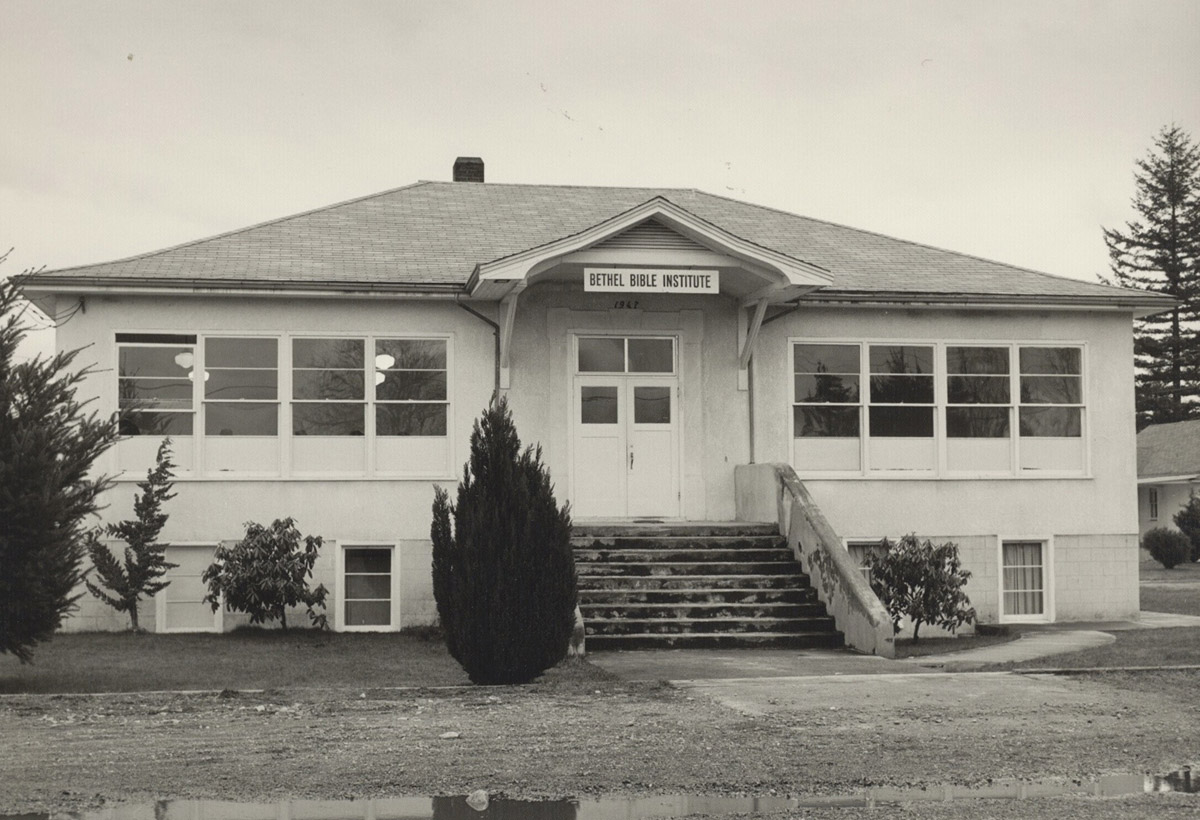Bethel Bible Institute

The origins of the Bethel Bible Institute can be traced back to the 1937 Ministers Conference of the Conference of United Mennonite Church of BC. Local Mennonite congregations in British Columbia had established their own Bible schools in places like Abbotsford, Coghlan, Sardis, and Yarrow. Among them, the Coghlan project, led by Nicolai W. Bahnmann, displayed considerable promise.
With Bahnmann and two other dedicated teachers, the school attracted 22 students in its first year, offering courses on the Bible, Church, and Mennonite History. Operating on a voluntary basis, the teachers imparted knowledge without charging any tuition fees. In 1943, the Conference assumed full responsibility for the school, which had been managed by a society since 1940.
The Conference, during its 1940 annual general meeting, instructed the Bible School Committee to work towards establishing a unified institution. This led to the acquisition of a four-acre plot of land adjacent to the West Abbotsford Mennonite Church, and the subsequent establishment of the Bethel Bible Institute in 1946. The institute soon developed its infrastructure, constructing a girls' dormitory and an administration building in 1947.
With Bahnmann and two other dedicated teachers, the school attracted 22 students in its first year, offering courses on the Bible, Church, and Mennonite History. Operating on a voluntary basis, the teachers imparted knowledge without charging any tuition fees. In 1943, the Conference assumed full responsibility for the school, which had been managed by a society since 1940.
The Conference, during its 1940 annual general meeting, instructed the Bible School Committee to work towards establishing a unified institution. This led to the acquisition of a four-acre plot of land adjacent to the West Abbotsford Mennonite Church, and the subsequent establishment of the Bethel Bible Institute in 1946. The institute soon developed its infrastructure, constructing a girls' dormitory and an administration building in 1947.
* * *
Over the years, the Bethel Bible Institute gained recognition as a prominent educational institution, despite fluctuations in student enrollment. It published an annual yearbook called "Echoes of Bethel," maintained a newsletter named "Contact," and fostered a strong alumni association. The institute played a crucial role in equipping around 600 students, including 100 graduates, for diverse forms of Christian service.
However, the institute faced challenges in the mid-1950s, such as the withdrawal of the West Abbotsford Mennonite Church from the Conference, which impacted student numbers. Additionally, differences in theological perspectives among faculty members raised concerns about the institute's direction. This led to a surprising recommendation by the Bethel Bible Institute Committee at the 1970 annual Conference—to merge with the Mennonite Brethren Bible Institute, resulting in the establishment of the Columbia Bible Institute.
Despite initial apprehensions, Columbia Bible Institute embraced an inter-Mennonite vision and successfully served the spiritual needs of young individuals from both denominations. It fostered cooperation, growth, and unity within the Mennonite community.
However, the institute faced challenges in the mid-1950s, such as the withdrawal of the West Abbotsford Mennonite Church from the Conference, which impacted student numbers. Additionally, differences in theological perspectives among faculty members raised concerns about the institute's direction. This led to a surprising recommendation by the Bethel Bible Institute Committee at the 1970 annual Conference—to merge with the Mennonite Brethren Bible Institute, resulting in the establishment of the Columbia Bible Institute.
Despite initial apprehensions, Columbia Bible Institute embraced an inter-Mennonite vision and successfully served the spiritual needs of young individuals from both denominations. It fostered cooperation, growth, and unity within the Mennonite community.
